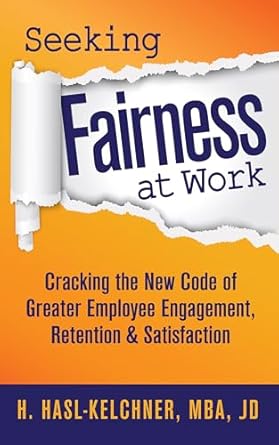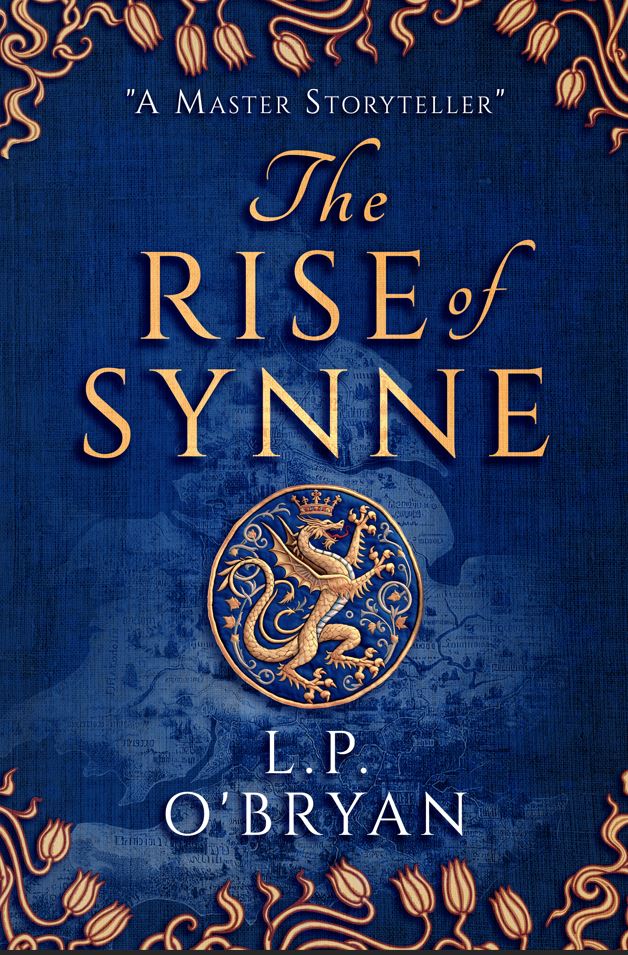Sep 9, 2024 | Editors' Blog
How we rate this book: Breathe for Me is ideal for readers who enjoy a suspenseful love story with depth and intensity.
General Summary:
 In Breathe for Me, Robert, on the brink of ending his life while rafting in treacherous waters, unexpectedly encounters Lilly, a young woman with the same fatal intent. Driven by a deep, instinctual need to save her, he rescues Lilly from the river and takes her back to his home, where he nurses her back to health.
In Breathe for Me, Robert, on the brink of ending his life while rafting in treacherous waters, unexpectedly encounters Lilly, a young woman with the same fatal intent. Driven by a deep, instinctual need to save her, he rescues Lilly from the river and takes her back to his home, where he nurses her back to health.
As Lilly begins to recover, she takes on the role of Robert’s nanny, but the undeniable chemistry between them hints at something more than just a caregiver relationship. Beneath the surface, both are haunted by their pasts—Lilly, who was forced to leave college after becoming pregnant, lost everything, including her child. Devastated by grief, she fled as far as she could, with nothing left to live for.
Meanwhile, a sinister figure lurks in the shadows—a deranged killer with dissociative identity disorder, fixated on Robert. As the tension between Robert and Lilly grows, so does the threat that endangers them both.
Breathe for Me is a gripping blend of suspense and romance, where the characters’ intense struggles with loss and longing are matched only by the danger that stalks them.
Concise Review:
Breathe for Me delves into the lives of two deeply wounded souls, Robert and Lilly, who find each other at their lowest points and discover a reason to keep going.
Robert’s life was shattered when his wife died in a car accident that nearly claimed his child as well. Wracked with guilt and grief, he reflects on the life he left behind in Italy, where he grew up as a prodigiously talented teenager before moving to the States. Though he quickly rose to success and built a thriving company, his work consumed him, leaving little time for his family. When the burden of his regrets becomes unbearable, Robert heads to the river with the intention of ending his life. But there, in the midst of his despair, he spots a woman on the verge of drowning herself—and something within him compels him to save her.
That woman is Lilly, a young mother who lost everything after becoming pregnant in college. Abandoned by her family and boyfriend, she raised her child alone, only to be crushed by grief when her baby died. The weight of her sorrow and self-blame drives her to the brink, where she spends her last bit of money on a journey to end her life as far from her past as possible. But Robert’s intervention pulls her back from the edge, and he brings her home, caring for her until she recovers enough to become the nanny for his child.
As Robert and Lilly navigate their complicated feelings and the “mad tension” that simmers between them, they must also confront the dark forces threatening to destroy them. Someone with a dissociative identity disorder is hunting Robert, determined to see him dead. The suspense builds as this unseen danger draws nearer, intertwining with the burgeoning connection between Robert and Lilly.
Breathe for Me is a fast-paced, suspenseful tale of finding love in the darkest of times. Both Robert and Lilly believe love is the last thing they need, but it may be the only thing that can save them. Despite its exploration of grief, guilt, and the shadows that haunt us, the story carries a powerful message of hope and redemption.
This is the kind of book you’ll want to read in one sitting—its blend of intense emotion, rising tension, and the looming threat of danger will keep you hooked until the very end.
General thoughts on the Novel:
Breathe for Me tackles heavy, emotionally charged themes, including grief over the loss of a loved one, overwhelming guilt, the desperation that leads to thoughts of suicide, and the menace of a killer on the loose. Yet, beneath these dark layers, the story also explores the profound themes of love and hope.
At its core, this is a love story about two people who find their missing halves in the depths of their despair, even as life continually throws obstacles in their path. The narrative is infused with suspense and unfolds at a fast pace that keeps you eagerly turning the pages. The storytelling is gripping, making it hard to put the book down.
Breathe for Me is ideal for readers who enjoy a suspenseful love story with depth and intensity.
.
FIND THIS BOOK ON AMAZON HERE: https://www.amazon.com/Breathe-Me-Donna-B-Comeaux-ebook/dp/B0CN4YXGC7/
Sep 6, 2024 | Editors' Blog
How we rate this book: Highly recommended for all managers, business owners and entrepreneurs.
General Summary:
Why do my employees seem to dislike me? Why do they rush out the door at five o’clock sharp? Why do they take extended lunch breaks when there’s so much unfinished work? It couldn’t possibly be ME, right? I’m a nice person—I rarely raise my voice, and I approve of their raises each year when they’re due. So why do they quit, complain, or take so many days off?
Managers and employers worldwide know just how costly employee attrition can be—or worse, the impact of employees who stick around just until something “better” comes along. So, what’s the solution? Is there
even a solution?
According to this author, the answer is a resounding yes. There are strategies managers can implement to show their employees that they are truly appreciated and valued. These include providing support when needed, keeping promises, and upholding the implied contract between employer and employee. In other words, maintaining fairness, respect, and balance in the workplace is key.
Concise Review:
Would you rather have a raise or a heartfelt compliment? According to Maslow’s hierarchy of needs, once our basic needs—such as food, shelter, and safety—are met, we begin to seek fulfillment of higher-level psychological needs, including esteem and self-actualization. At this stage, individuals require more than just
financial compensation; they seek recognition, respect, and a sense of belonging.
Surprisingly, the affirmation of self-worth in the workplace often comes not from monetary rewards, but from being treated with fairness, respect, and dignity. When employees feel that their contributions are acknowledged and valued, it can have a profound impact on their motivation, satisfaction, and overall engagement.
Managers play a crucial role in fostering this environment. Meeting reasonable expectations, addressing disappointments through open communication, and demonstrating strong, empathetic leadership are essential tools that signal to employees that they are genuinely valued. When employees feel supported and appreciated, they are more likely to be committed, productive, and loyal to the organization.
In essence, while a raise might temporarily boost morale, it’s the consistent, everyday acts of recognition and fairness that create a lasting sense of value and belonging within the company. This, in turn, not only enhances individual well-being but also strengthens the overall culture and success of the organization.
General thoughts on the Novel:
 This book takes a hard look at how and why individuals in positions of power within organizations, whether large corporations or small businesses, can unconsciously demean or disrespect their employees. Such behavior can lead to significant consequences, including low productivity, internal dissension, and widespread cultural dissatisfaction. Often, these issues stem from managerial practices that may seem benign but, in reality, erode employee morale and engagement over time.
This book takes a hard look at how and why individuals in positions of power within organizations, whether large corporations or small businesses, can unconsciously demean or disrespect their employees. Such behavior can lead to significant consequences, including low productivity, internal dissension, and widespread cultural dissatisfaction. Often, these issues stem from managerial practices that may seem benign but, in reality, erode employee morale and engagement over time.
Managers must critically examine their supervisory practices and strategies, recognizing that even subtle actions or attitudes can contribute to a serious decline in employee satisfaction within their department. While it can be challenging to scrutinize and critique one’s own behavior, it is an essential step for those who aspire to lead a motivated and highly productive workforce. Employees who feel respected, valued, and supported are far more likely to be engaged in their work and contribute positively to the organization.
This book offers the crucial conversations we need to have with ourselves as leaders if our goal is to foster a thriving workplace. It encourages introspection and provides practical guidance on how to make meaningful changes that can transform a struggling team into a cohesive, satisfied, and high-performing unit. By addressing these potential cracks in our leadership approach, we can build a stronger, more resilient organizational culture that benefits everyone involved.
FIND THIS BOOK ON AMAZON HERE: https://tinyurl.com/5n7hyze7
Aug 31, 2024 | Editors' Blog
 A courageous and compelling work of historical fiction, comparable to the very best.
A courageous and compelling work of historical fiction, comparable to the very best.
In The Rise of Synne readers are transported back to the tumultuous aftermath of the Battle of Hastings, as seen through the eyes of Synne, an orphan healer with royal blood.
This novel takes a refreshing departure from traditional historical narratives by focusing on a female character of seemingly low status, offering a unique and compelling perspective on a period usually dominated by male warriors. The story begins not with the clash of swords but with the struggle of a young woman navigating the new world order left in the wake of medieval England’s darkest hour.
Synne’s journey intertwines with real historical events and figures, including the arrogant Magnus, son of the fallen King Harold, and William the Conqueror himself, and showcases the author’s commitment to historical veracity while weaving a truly intriguing narrative. The promise of Synne’s inherited seer powers adds an intriguing mystical layer to the tale, setting the stage for more adventures in this series.
This is not just a story of survival but a testament to the strength of a woman determined to change her fate, whatever it takes. It’s a must-read for fans of Philippa Gregory or Anne O’Brien, promising a series that will captivate readers with its detailed historical context, rich character development, and a storyline that highlights an often-overlooked perspective. Highly recommended.
Review extract from The International Review of Books.
Find this book on Amazon here: The Rise of Synne.
Jul 18, 2024 | Editors' Blog, Interviews, Sci-fi
Today, we’re talking with Alastair Bowman about his book,
Tell us something unexpected about yourself!
I love living in France – and I will get my European passport back in a couple of years!
Why do you write?
To share. And to make people think.
Where did you get the inspiration for your current book?
My passion for economics and social justice.
What do you enjoy the most about your genre?
Scifi gives lots of possibilities to explore new worlds and see ourselves in them.
How would you describe your writing process?
I generally start early. If nothing feels right, then I read and re-write what I’ve previously written or go and do something else. It has to feel right in the moment even though it will likely be re-written.
What do you think authors have to gain from participating in social media?
Community.
 What advice would you have for other writers?
What advice would you have for other writers?
Keep going, as long as you enjoy it.
How do you select your books’ titles and covers?
The title is whatever feels right. I held a competition for the cover, with the brief to convey jeopardy using the world, a drop of water and barbed wire. The winner added the eye to make a tear, which I think is very effective.
What’s your next step?
I am writing the sequel to ‘Creative Destruction’ – ‘Icarus Falls’.
What book do you wish you’d written?
I owe a lot to John Steinbeck’s ‘The Grapes of Wrath’, but for the writing, either Kazuo Ishiguru’s ‘The Remains of the Day’ or Sebastian Faulk’s ‘Birdsong’.
How do you react to seeing a new review for your book?
It’s always flattering to have a reader, and even better if they give feedback.
FIND ALASTAIR’S BOOK ON AMAZON
Jul 18, 2024 | Editors' Blog, Interviews, Mystery, Romance
Today, we’re talking with Donna B. Comeaux about her book, Breathe for Me
Tell us something unexpected about yourself!
The most unexpected thing about me is my tenaciousness to complete and publish my novel. It’s quite an accomplishment. And I’ve enjoyed every moment of this journey.
Why do you write?
I write because there would be nowhere for the crazies to go that are inside my head.
Where did you get the inspiration for your current book?
Every Breath You Take by Judith McNaught.
What do you enjoy the most about your genre?
Because there are so many subgenres, writers now have the freedom to be more creative. Romantic suspense can encapture bad villains and include whimsical fantasies or unleash dragons. It really excites me to be able to explore this amount of creativity without the boundaries that once held us back.
How would you describe your writing process?
My writing ritual requires me to get up before sunrise to check my social media platforms, then begin work on the rewrites of my next novel. It’s literary fiction. I hope to launch it by early 2025.
What do you think authors have to gain from participating in social media?
If you exude patience and do it right, authors can gain meaningful relationships through social media. But it takes time, one person at a time. Being authentic is key. I’m not at all good at this and it’s taken me a while to accept the fact that I must heavily invest in this part of book marketing.
 What advice would you have for other writers?
What advice would you have for other writers?
I encourage all writers to do two things: never give up on their dreams, and perfect your writing in every way possible. Proofread your work. It’s the only representation of you that your readers see.
How do you select your books’ titles and covers?
I usually begin writing a book with a theme in mind, and from that theme comes my title. I will sometimes sit for hours just working on the title. And there have been times that I won’t begin writing until the title is firm in my mind.
What’s your next step?
I’m presently working on a literary fiction novel that I hope to release in early 2025. After that, I have a crime and detective novel halfway finished that I would love to complete. I have many stories I’ve started, so I’m not short of ideas or projects to work on.
What book do you wish you’d written?
Not so much a book but a style of writing. I want to one day write a book that George Orwell refers to as windowpane writing. To write that clear and concise fascinates me.
How do you react to seeing a new review for your book?
Nothing excites me more than receiving new book reviews. I get to hear everyone’s viewpoint of the book. I learn a lot from my readers. I’ve even thought of new ideas for a book while reading them. Most of all, they make me smile.
FIND DONNA’S BOOK ON AMAZON
Jul 11, 2024 | Editors' Blog, Fantasy, Interviews, YA
Today, we’re talking with TF Burke about her book,
Tell us something unexpected about yourself!
I have been fencing sword and dagger for over a decade in both tournaments and in melees (done in a safe manner) with up to several hundred fencers on a side.
Why do you write?
I’ve lived in worlds of story since I was very young and I find that writing nourishes my soul, along with helping me to understand myself and the world around me better.
Where did you get the inspiration for your current book?
I find the “what-if” games takes me to some incredible places. In my current book I asked a lot of what-if’s when it comes to mythology, some new-age beliefs with chakras, a bit of astrology, faery lore, ancient history, and stories similar to Lord of the Rings and then mixed it with a message for young people that no matter what, they are always enough.
What do you enjoy the most about your genre?
My genre is YA Fantasy and I’d have to say the wonder beats of Fantasy mixed with the ability to explore topics with an idealistic lens is rather beguiling.
How would you describe your writing process?
First is the what-if phase and getting a sense of who the characters are. After that I tend to have a broad sense of plot, followed by a messy draft that gives me an idea where the story’s “mile-markers” are. After that, I write. I like having enough wiggle room to be surprised as the story organically reveals itself but have enough of a path that I don’t end up in the weeds.
What do you think authors have to gain from participating in social media?
Being able to connect with one’s readers is one of the highlights with writing in today’s world. After all, the space between writer and reader… well, that’s where the true magic happens. Also, social media is one of the places where a creator can shine. For example, it’s enjoyable sharing my under 30 second faery lore reels that are based on the research that I do.
 What advice would you have for other writers?
What advice would you have for other writers?
Understand that your first draft’s job is not to be pretty nor should it be compared to the finished work of other authors. It’s job is simply to exist. You will find gold within its pages… ideas for how to structure your story. You will find things that don’t work and you will throw away but even those throwaway things will probably lead you to ideas you wouldn’t have had otherwise. Writers write. Celebrate your chaotic messy starts.
How do you select your books’ titles and covers?
Excellent question! Titles are hard. It took me a long time to come up with the title to Faeries Don’t Lie and it’s actually based on something my protagonist said… plus, I love the little bit of a twist in it…Faeries Don’t Lie…or do they? As for covers, I have a designer in Romania who is absolutely wonderful! I originally found her on 99 Designs. I give her an idea of the “feel” of the book and she sends me her vision of it. So far, she has been spot on!
What’s your next step?
My next step is to continue working on Book 2 in the Heart of the Worlds series, Faeries Don’t Forgive, and have it launch in Feb 2025. And after that, it’s working on Book 3, Faeries Don’t Hide, which comes out November 2025.
What book do you wish you’d written?
I’m actually writing the books that I want.
How do you react to seeing a new review for your book?
It’s exciting to get feedback and I definitely appreciate my readers taking time out to leave a review.
FIND TF’S BOOK ON AMAZON
 In Breathe for Me, Robert, on the brink of ending his life while rafting in treacherous waters, unexpectedly encounters Lilly, a young woman with the same fatal intent. Driven by a deep, instinctual need to save her, he rescues Lilly from the river and takes her back to his home, where he nurses her back to health.
In Breathe for Me, Robert, on the brink of ending his life while rafting in treacherous waters, unexpectedly encounters Lilly, a young woman with the same fatal intent. Driven by a deep, instinctual need to save her, he rescues Lilly from the river and takes her back to his home, where he nurses her back to health.

 A courageous and compelling work of historical fiction, comparable to the very best.
A courageous and compelling work of historical fiction, comparable to the very best. What advice would you have for other writers?
What advice would you have for other writers?
 What advice would you have for other writers?
What advice would you have for other writers?
 What advice would you have for other writers?
What advice would you have for other writers?
